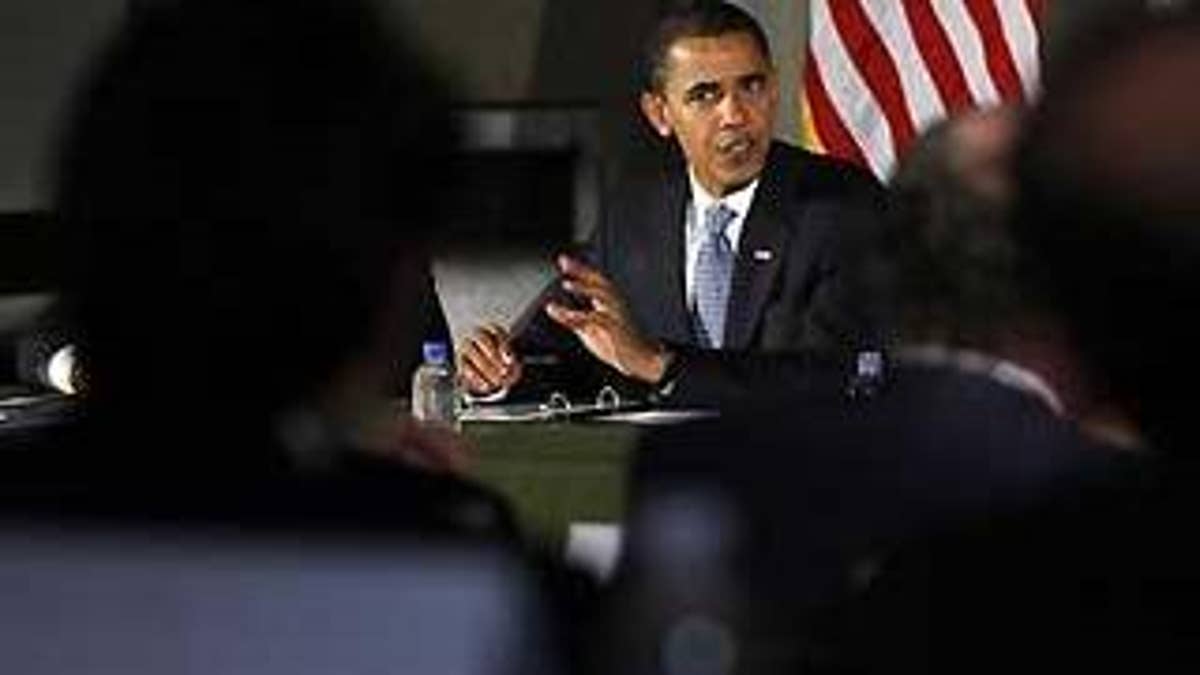
After bailing out Wall Street and the U.S. auto industry amid warnings of a deep recession, Uncle Sam now is being asked to chip in $1 trillion over two years for states facing severe budget shortfalls.
Five Democratic governors are pleading the states' case to Barack Obama, seeking a bailout package that would include $250 billion for education and $150 billion in middle class tax cuts.
And Obama seems willing to provide help once he takes office as president Jan. 20, though the scope is uncertain. Obama's aides and congressional leaders have been talking about a package roughly half the size of the two-year plan proposed Friday by the governors from Wisconsin, Massachusetts, New Jersey, New York and Ohio.
The governors said they had presented their plan to Obama's transition team as well as congressional leaders, arguing that higher level of federal aid is needed to deal with unprecedented state budget shortfalls in 41 states and Washington, D.C., that the Center on Budget and Policy Priorities pegged at $42 billion for the current fiscal year alone.
Wisconsin Gov. Jim Doyle said congressional leaders and the Obama team have been receptive to the governors' ideas.
"That's not to say they've told us this is what they'll do or they're with us all the way," Doyle said. He also said other governors were involved in creating the plan, which grew out of an early December meeting that Obama had with the nation's governors.
In his weekly radio address Saturday, Obama urged congressional leaders to move quickly on an economic recovery plan, even as some Republicans are saying they want more time to review the details.
Obama said Congress should pass an American Recovery and Reinvestment Plan designed to create 3 million jobs. Obama hasn't announced a final price tag on it, but aides said the cost could be as high as $775 billion.
The Obama camp could not be reached Saturday for response to the governors' request.
Over two years, $1 trillion is equal to more than 3 percent of the gross domestic product, the U.S. economy's total output. A package of that size is likely to draw significant opposition from congressional Republicans and concern from moderate and conservative Democratic lawmakers who oppose large budget deficits.
In addition to the money for education and tax cuts, the governors said their plan includes $350 billion for road construction and other infrastructure projects and $250 billion for social service programs such as Medicaid.
"Clearly it's a big number and designed to draw attention, but it's also the logical next step," said Nick Johnson, director of the state fiscal project at the Center on Budget and Policy Priorities.
"As the economic news keeps pouring in and it remains bad, the broad consensus is the package needs to get bigger," he told FOXNews.com.
The governors all said their states are facing unprecedented budget shortfalls that will require deep cuts to services and possibly irreparably harm their education systems.
"We aren't crying wolf," Ohio Gov. Ted Strickland said. "These are real circumstances, unprecedented situations we are facing."
Ohio's budget deficit could grow to $7.3 billion even after $1.9 billion was cut from its current budget, Strickland said.
New York Gov. David Paterson said his state faces a $15.4 billion deficit. Wisconsin's budget is expected to be $5.4 billion short by mid-2011.
New Jersey Gov. Jon Corzine said he had just left a meeting with state legislative leaders where he proposed $2.1 billion in cuts on top of $600 million that's already been cut from the budget.
Strickland said the federal stimulus is needed to help bridge the gap from the current recession to when there's a rebound. Even with the money, states will have to make deep cuts, he said.
"We are not, any of us, talking about federal money to expand spending, expand programs, to do new things," Massachusetts Gov. Deval Patrick said.
Johnson, the analyst at the Center on Budget and Policy Priorities, said the irony of the situation is that the states need many of the services they are cutting in order to recover.
"You need a well-educated workforce, you need a good healthcare system for a healthy workforce," he said. "Infrastructure is really important. That's really the challenge."
Johnson added that the request should not be viewed as a bailout because it is consistent with what the Obama camp was already proposing in its stimulus package.
In October, Congress authorized $700 billion for a rescue of financial institutions, giving the administration the first of two $350 billion installments. The Treasury is providing up to $17.4 billion for General Motors and Chrysler from that rescue fund and is calling for the release of the second installment after exhausting the first.
A forecast from Global Insight shows that the economy hasn't hit bottom yet.
National economic growth is now expected to drop 1.8 percent this year, rather than increase 1 percent. The U.S. labor market is expected to lose 3.7 million jobs during the downturn, with unemployment reaching 8.7 percent in the first half of 2010, it said.
That forecast assumes there will be a $550 billion federal stimulus package, roughly half of what the governors requested.




